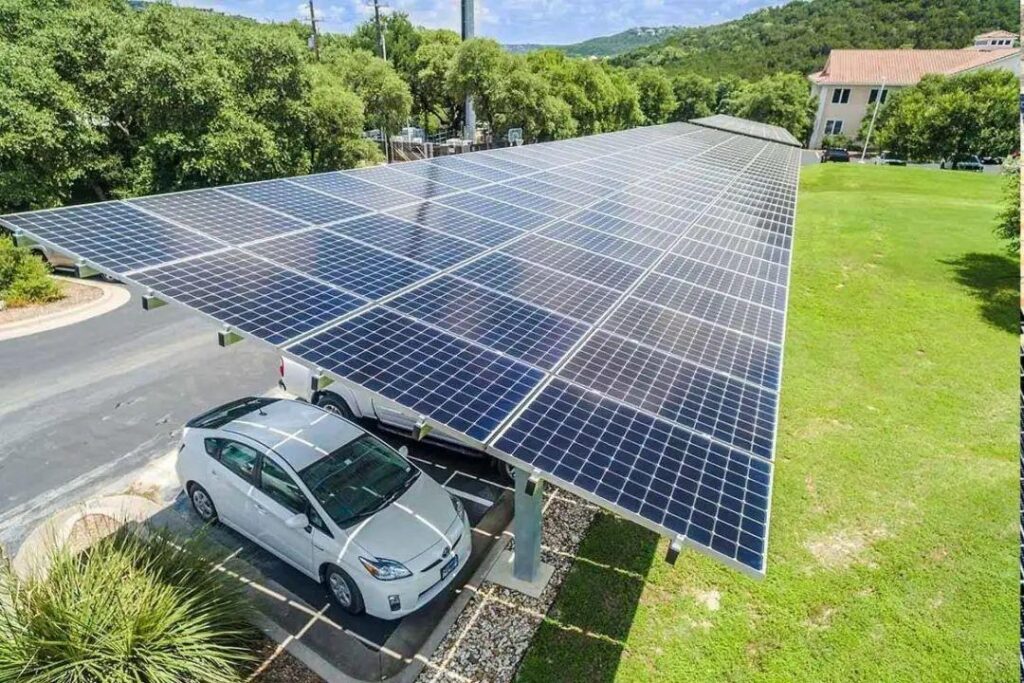Solar panels are devices that can convert solar energy into electricity, also known as “solar panels” or “photovoltaic panels”. It consists of many solar cells made of semiconductor materials such as silicon, selenium, and copper indium gallium sulfur. When sunlight shines on a solar cell, its energy is absorbed and electron hole pairs are generated. These electrons and holes will move and form an electric current in the circuit, generating energy.
The main components of solar panels
The main composition of solar cells is a p-n junction hybrid device, composed of two different doped semiconductors. Under the action of sunlight, charge separation is generated, forming a micro electric field, driving electrons to drift to the n-type semiconductor region, and holes to drift to the p-type semiconductor region. The power output is influenced by factors such as light intensity, temperature, carrier lifetime, battery voltage, and resistance.
Installing solar panels requires considering many factors, such as facing direction, inclination, obstruction effects, and power plant capacity. The commonly used types of solar power plants include monocrystalline silicon, polycrystalline silicon, and amorphous silicon, each with different performance and cost advantages.
The benefits of solar panels
There are many benefits to using solar panels. Firstly, solar energy is an infinite resource that can be obtained globally. Secondly, solar energy is a clean energy source that does not produce harmful gases or waste. In addition, installing solar panels can help individuals or businesses save energy costs, especially during long-term use.
The limitations of solar panels
Although solar panels have significant advantages, there are also some limitations. Firstly, the performance of solar panels is influenced by weather and climatic conditions, such as overcast weather or dust or dirt coverage. In addition, the storage and distribution of solar energy is also a challenge, as it requires relying on technologies such as batteries and inverters to master and utilize the advantages of solar energy.
Overall, solar panels have become a renewable, clean, and economical energy choice, and are being applied in an increasing number of fields. In the future, with the continuous improvement and popularization of technology, it is expected to become a more mainstream energy source.


